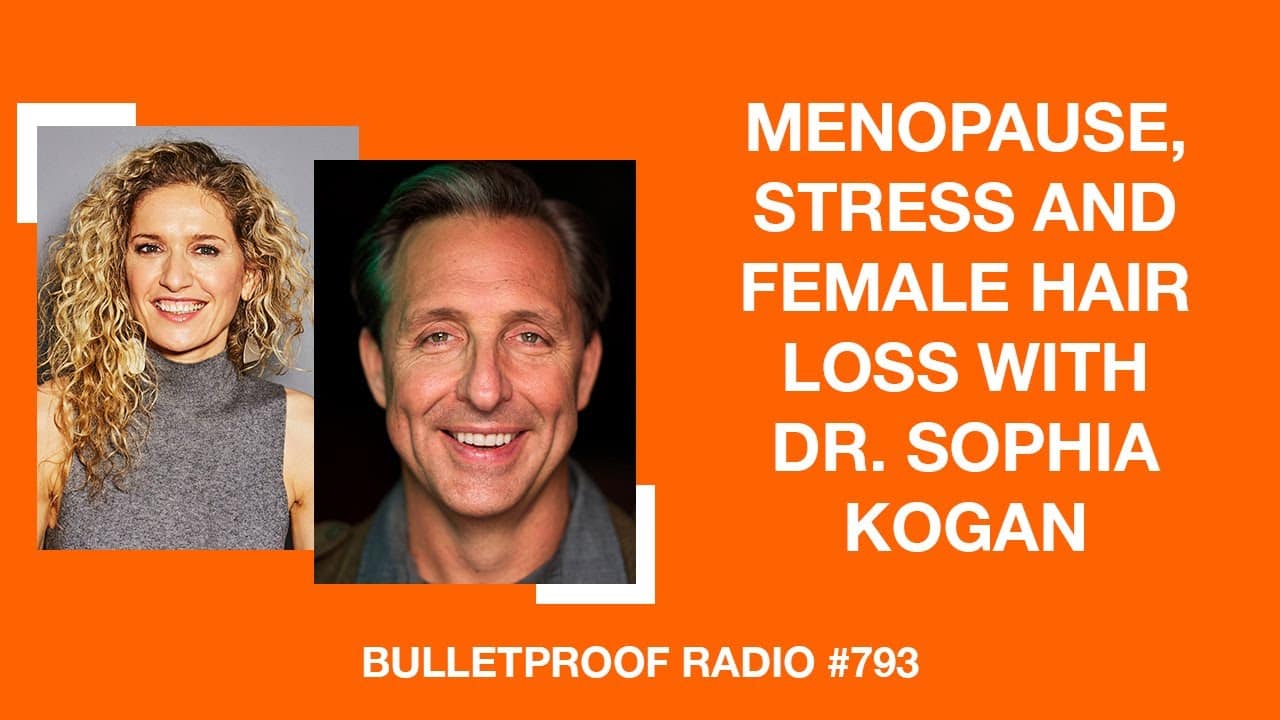Menopause and hair loss are interconnected, and stress may be crucial in exacerbating the condition. Learning more about these topics can help women manage symptoms and navigate the changes their body is going through with greater ease. In this blog article, we dive into the fascinating link between menopause, stress, and female hair loss, with insights from Dr. Sophia Kogan, an expert in diet, nutrition, metabolic disease, and insulin sensitivity.
Here are three bullet points to guide you through this informative piece:
1. The Physiology of Menopause and Hair Loss
Menopause is a natural biological process that marks the end of a woman’s reproductive years. As the body goes through a hormonal shift, several changes can occur, such as hot flashes, mood swings, and sleep problems. In many cases, hair loss is also a common symptom during menopause.
Understanding why hair loss happens during this time can help women feel less anxious and more confident in their skin. Dr. Sophia Kogan explains that hair follicles contain hormone receptors that make them sensitive to hormonal changes. The fluctuation of hormones such as estrogen and progesterone during menopause can disrupt the hair growth cycle, leading to hair thinning and hair loss.
2. The Role of Stress in Hair Loss
Stress seems to be the common denominator in most chronic diseases, and hair loss is no different. Stress can trigger off such hair conditions as telogen effluvium and alopecia with a high level of success. Also, stress messes with hormones, which we noted above as contributing to menopause hair loss.
Stress affects both mental and physical health. When the body is under stress, it activates the fight or flight response, releasing stress hormones such as cortisol and adrenaline. Chronic stress, which lasts for extended periods, can cause sustained cortisol release, known as “stress hormones,” leading to inflammation, chronic disease, weight gain, and hair loss.
3. How to Manage Menopause, Stress, and Hair Loss
Managing menopause, stress, and hair loss can be done with a few lifestyle changes and medical treatments. Dr. Sophia Kogan suggests specific lifestyle changes that you can make:
a. Eat a nutrient-dense diet high in protein, healthy fats, and micronutrients.
b. Manage stress through yoga, meditation, deep breathing exercises, or therapy.
c. Exercise regularly to help manage weight, improve circulation, and boost mood.
d. Talk to your doctor about alternative treatments, such as hormone replacement therapy, although consulting with a doctor is always recommended.
In Conclusion:
Menopause, Stress, and Female Hair Loss are all interwoven, and this piece hoped to explain the complexity of this relationship, making sure to remain as factually accurate as possible. If you are experiencing hair loss, remember that you are not alone; there is help. Making lifestyle changes and consulting with a doctor can help you manage your symptoms and feel more confident in your skin, so don’t hesitate to reach out.
*****
Source Description
Bulletproof Radio Episode 793
https://daveasprey.com/nutrafol-sophia-kogan-793/
If you want thicker hair, learn how hormones, nutrition, and stress affect hair health and how nutraceuticals can help.
In this episode of Bulletproof Radio, Dr. Sophia Kogan is back on the show to share new research about women’s hair loss and thinning.
Dr. Kogan is co-founder and Chief Medical Advisor at Nutrafol. The company creates supplements to decrease shedding and increase hair growth. Several of the products are designed specifically for women’s physiology.
Her new study is critical because women are about four times more susceptible to hair loss than men. Women not only have different hormonal pathways and factors that contribute to what they need for hair growth, but they also have phases in their lives, like menopause or pregnancy, that make them more susceptible to hair loss.
“This is the first study that came out on women in menopause or who are going through hair thinning,” she says.
Stress is another major factor that contributes to hair thinning and loss
Stress affects our hair throughout our entire lifetime, but during this past pandemic year, it’s been worse than ever. When we’re suffering from a bunch of stress (whether physical or emotional), the body pulls its resources to preserve its life internally, not hair growth.
“During stress, hair follicles are synchronistically shifted, a huge number of them, into that resting phase,” Dr. Kogan explains. “So, the body says, ‘I want to pull the resources internally. I don’t need or care about hair. I want to preserve my life.’ And so it goes to the vital organs. That’s what happens to the hair growth cycle, and it shifts, and suddenly, we have a massive amount of hair shedding about three to six months later.”
“Women go through a tremendous amount of stress about their hair, even more so than men because men sort of expect to thin,” Dr. Kogan says. She explains that the experience of hair loss for women often has a specific shame and guilt associated with it, too.
Dr. Kogan says that we all experience stress differently, so taking time in your day for something that brings you into a flow state is essential. “Each person is going to be different, but they’ve got to feel a feeling of calmness because that’s when you calm the nervous system, “she says.
Listen on to learn more about Dr. Kogan’s research, ways to manage your stress, and nutraceutical solutions for hair thinning and loss.
NEW BOOK! “Fast This Way: Burn Fat, Health Inflammation, and Eat Like the High Performing Human You Were Meant to Be”
https://fastthisway.com
Connect with Dave Asprey!
Web: https://daveasprey.com/
Instagram: https://www.instagram.com/dave.asprey/
Facebook: https://www.facebook.com/bulletproofexecutive/
Twitter: https://twitter.com/bulletproofexec
YouTube: https://www.youtube.com/c/DaveAspreyBPR
Bulletproof Radio: https://daveasprey.com/category/podcasts/
Blog: https://daveasprey.com/blog/


